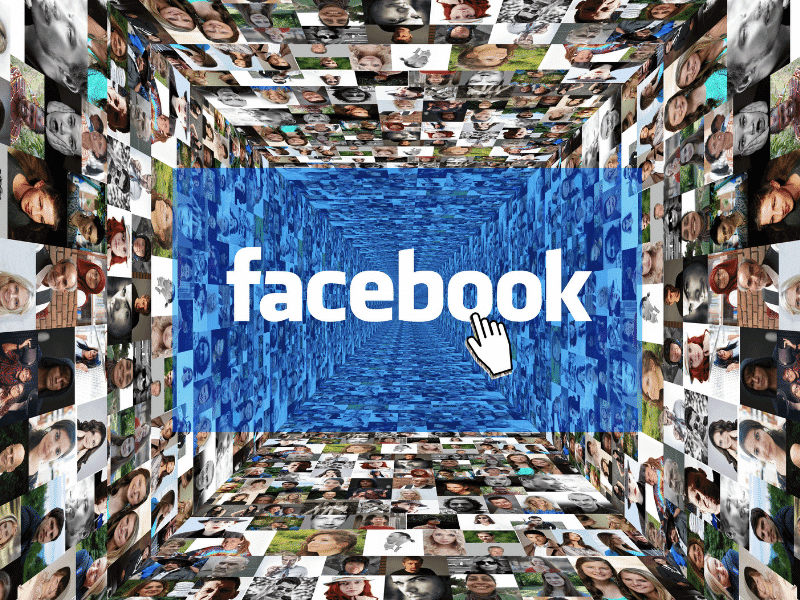The big business of big data
published on 10.11.21
The first thing we do when we wake up every morning is to check our iPhone (Apple) or Android (which is owned by Alphabet, of which Google is a subsidiary company) to see if we’ve got any notifications from LinkedIn (Microsoft), WhatsApp or Instagram (both of which are owned by Facebook); and then we head over to Amazon to check the status of our most recent order. In other words, we haven’t even got out of bed, and yet we’ve already informed the big five companies in the technology sector of our activity.
But how is this vast array of information used? That is the key to everything. Through the processing power of supercomputers, it can be harnessed to automate business processes, regulate traffic, save energy and manage health problems. But it can also be turned into a powerful tool to undermine public freedoms and erode privacy, the latter of which is increasingly becoming viewed as unavoidable.


Computation is power
German philosopher and mathematician Gottfried Wilhelm Leibniz once said: “there will come a day when humans will no longer argue; they will sit around a table and say… let us calculate.” In 1679, when he created the binary system used in computing, this phrase would have indeed seemed fanciful; but that day has already arrived and this is happening right now. The numbers are startling: around 2.5 trillion bytes of data are generated each day on the internet. This enormous (and ever-increasing) amount comes from all directions: smartphone messages, videos, GPS signals, searches, online purchases, social networks, bank transfers, the list goes on and on. And all this information is collected and sorted for processing in increasingly powerful supercomputers, which will soon be capable of performing a billion calculations per second, a feat beyond human imagination. This massive quantity of information is what we call big data and the way it is managed in big companies has changed processes, objectives, and decision making in recent years.
We are raw materials
The raw materials of big data are each of us who, through any web-enabled device, are communicating our location in real-time and, through our searches, divulging our tastes, interests, ideological choices, or the places we want to travel to. Everything we write is logged, even if it is poorly written or irrelevant. And it is what happens next with all this information that is what we should really be concerned about.
In fact, the real business of big data is getting users to spontaneously reveal their likes and interests, and for each of them to plot what Facebook creator Mark Zuckerberg called “the social graph”, that is, each person’s set of relationships. This is actually simpler than it seems. There is no need to ask people what they think or where they go. We ourselves reveal who we are, what we do and what we think, freely and spontaneously. And what’s more, we are happy to post it on our social media accounts.

The volume of all this available information can be overwhelming and the management of these flows presents serious problems that are not only technical but also pose (or should pose) more complex questions on values and decisions.
A world filled with cookies
We are all constantly generating information; even when we are not actively using our devices. In fact, using data from the consultancy firm Domo, the wonderful “Data Never Sleeps“ infographic shows the interactions of the more than 4.5 billion people who are connected to the internet through some truly incredible figures. Although these figures are already out of date as they are increasing every day seemingly without end.
To give an example, every minute:
- 452,000 hours of video are watched on Netflix.
- 167 million videos are played on TikTok.
- 575,000 tweets are posted.
- 5.7 million searches are performed on Google.
- 65,000 photos are posted on Instagram.
- 6 million people make a purchase online.
Everything is data. That is why new technologies that work with big data must calculate millions of variables, making correlations that would intuitively be almost inconceivable, which allows business decisions to be made in real-time and workable solutions to be proposed for problems that would otherwise seem unsolvable. And this is just the beginning.
Today, we have everything at our fingertips through our smartphones, which promise access to a secure, fast, and efficient world. But there is always a price to pay. We have to update and accept all kinds of cookies, through which our private lives become public and the very notion of privacy is rendered meaningless. And so everyone accepts them: after all, they are the gateway to a brave new world. Cookies collect our information, archive it, share it, and enable us to enjoy an increasingly seamless, personalized, and pleasurable consumer experience.
GAFAM, “essential” companies
As we previously mentioned, every day we connect with the big five multinationals referred to as GAFAM, an acronym for Google, Apple, Facebook, Amazon, and Microsoft. These are companies that we have come to regard as essential (even indispensable) to our work or leisure routines. However, what is of real importance to them are the correlations that the data allows them to make, and not (or not so much) the identities that can be established.

For this reason, it is important to avoid taking a certain conspiratorial view of big data. In big data processing, the very use of the term “personal data” makes very little sense. We are not studied as real individuals, but as groups of users/consumers from the point of view of potential future use/consumption. This Big Brother (GAFAM) does not wish to keep track of us individually. In reality, to the computer system, individuals as such are of no interest at all. Business is not concerned with a specific individual responding to a demand, but with the mobilization of very large groups. The data is collected depersonalized, perfectly anonymized, and stays that way most of the time because business is not the individual, but the group that the individual is part of.
It is for this reason that the success of GAFAM’s big data relies on the trust that is placed in them. In fact, Sergey Brin, president of Alphabet, declared that they could not “survive if people don’t trust us.” As such, the products and services provided by these companies have become indispensable to everyone, thereby nurturing a natural tendency towards monopoly in the digital sector.
Author: Joan Margarit, marketing, and communication analyst.
Learn more about our MSc Digital Transformation & Business Innovation here:
